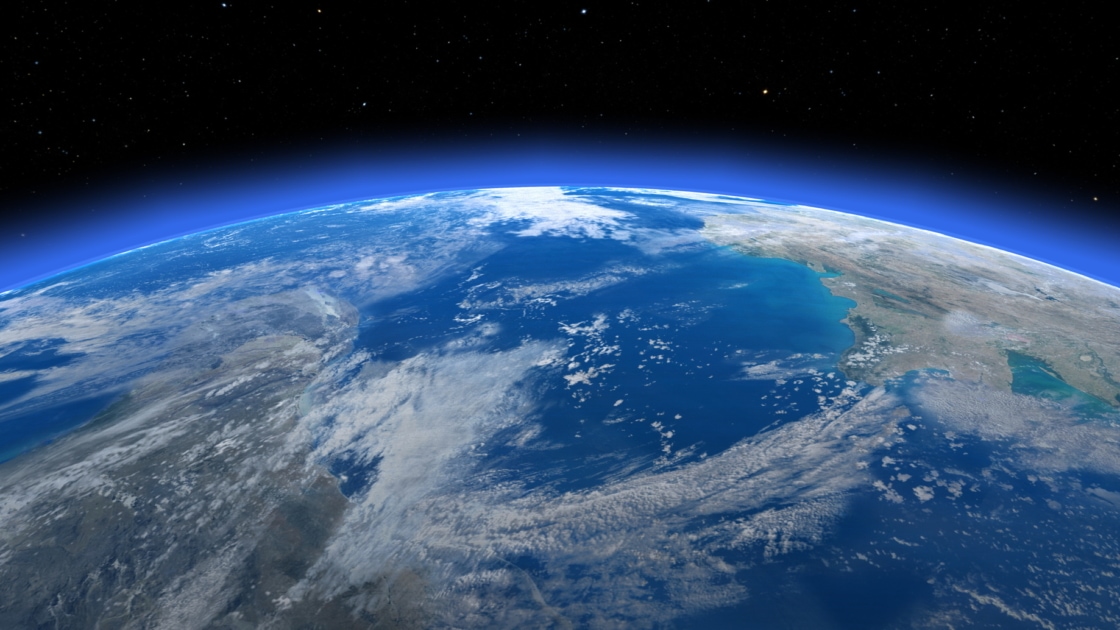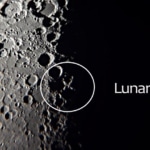Exceptional Earth
Planet is Earth is exceptional for many reasons, but most of all because it's home. Learn more about this unique ball of rock in space!

Over the years, we’ve shared fun trivia about each of the other planets in our Solar System, and even about the growing number of dwarf planets astronomers have discovered in the cold region of space beyond the planet Neptune. As fascinating as all of these distant bodies are, no planet has the same remarkable mix of characteristics as the one we’re standing on right now. Just because it’s familiar to us doesn’t make the planet Earth any less exceptional.
Here’s a look at some interesting facts about the place we all call home:
- Earth is one of four terrestrial planets in our Solar System, along with Mercury, Venus, and Mars. Terrestrial planets are made of solid rock, as opposed to gasses. Terrestrial planets all have a molten core composed primarily of iron, covered in a silicate mantle. Earth is the densest planet in our Solar System.
- Earth is unique among terrestrial planets in that its surface is made up of 71% water. Only 0.03% of that water is drinkable. It is also the only planet to have water in all three states of matter: solid (ice), liquid (oceans, rivers, rain, etc.), and gas (clouds).
- Earth’s diameter is 7,918 miles, making it the largest of the terrestrial planets, and fifth largest planet in our Solar System.
- Earth orbits a distance of 92,960,000 miles from the Sun. This distance is one Astronomical Unit, the unit of measurement used to describe the distance of other bodies in space. This distance is within the habitable zone, or “Goldilocks Zone,” of our Solar System, which is the distance at which life can comfortably dwell. Earth is the only planet in our Solar System to inhabit this zone.
- It takes Earth 24 hours to rotate once on its axis and approximately 365.25 days to orbit the Sun. Because it doesn’t take exactly 365 days, we have to adjust our calendars once every four years by adding a Leap Day.
- The 365-day trip the Earth makes around the Sun is a journey that totals 584,367,000 miles.
- Earth’s atmosphere is composed primarily of nitrogen, oxygen, argon, and carbon dioxide. Our atmosphere is crucial to our ability to live on Earth. It protects us from harmful ultraviolet rays, moderates, temperatures, and provides the air we breathe. More than 99.9% of Earth’s atmosphere sits within 62 miles, or 330,000 feet, of its surface. The other fraction of a percent is so sparse that it goes on for another 500 miles, or 2,600,000 feet. The atmosphere is divided into five layers of density, the troposphere, mesosphere, stratosphere, thermosphere, and exosphere.
- Earth has one natural satellite, simply known as the Moon. Our Moon is 2,159 miles in diameter, making it the fifth largest one in the Solar System, and largest in relation to the size of its planet. The Moon orbits Earth at a distance of 238,900 miles.
- Earth’s name comes from the Middle English word “erthe,” which is ultimately derived from the Norse earth goddess Jord (pronounced “yurdth”), mother of the god Thor.
- Unlike planets with thinner atmospheres, Earth has a temperature range of only about 250° F. The hottest temperature ever recorded on Earth was 134° F, at Death Valley, California, on July 10, 1913. The coldest temperature was -128.6° F, recorded at the Soviet Vostok Station in Antarctica, on July 21, 1983.
- Because we live on Earth, we can’t view it in the night sky like we can the other planets. Astronauts aboard the International Space Station can see it, though, and “Earth-gazing” is said to be a favorite activity of space travelers while they’re away from home. If viewed from a distance, Earth would be the exceptionally bright, due to the sunlight reflected off the water.

Jaime McLeod
Jaime McLeod is a longtime journalist who has written for a wide variety of newspapers, magazines, and websites, including MTV.com. She enjoys the outdoors, growing and eating organic food, and is interested in all aspects of natural wellness.





